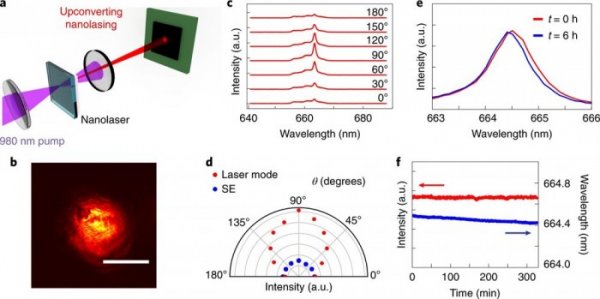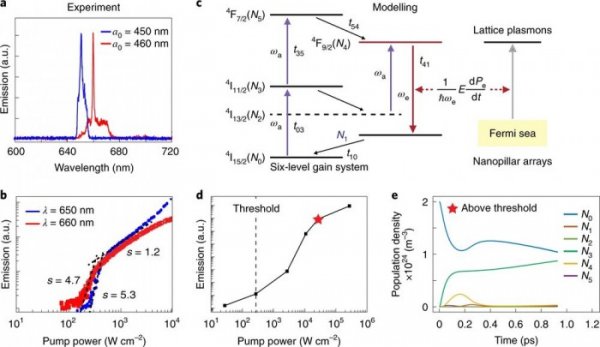Scientists successfully developed a new type of nano laser: about a thousand times thinner than human hair
Recently, a scientific research team composed of Northwestern University and Columbia University has successfully developed a new type of laser, which is implanted into biological tissues with little damage to the human body. The thickness measured by the research team is less than 150 nanometers, and the power required is also very small. The team hopes to further optimize the laser device to open up new therapies for neurological diseases and disease diagnosis.

For a long time, scientists have been studying how to use light to improve various symptoms of patients. These measures include using various laser therapies to attack cancer cells, removing diseased tissue in "delicate areas", removing toxic brain proteins that may cause Alzheimer's and Parkinson's disease, and so on.
However, lasers also have great potential for detecting cancer and other diseases. For example, earlier this year, scientists from the University of Arkansas published a paper describing a tool that uses a laser to heat tumor cells circulating around the blood so that it can be detected by ultrasound.
The newly developed equipment of the research team is mainly made of glass, with a thickness between 50 and 150 nanometers, which is about a thousand times thinner than human hair. Previously, progress has been made in developing lasers of this size, but they usually require ultraviolet light to power them, which is not always ideal.

P. James Schuck, an associate professor of mechanical engineering at Columbia University, said: "This is bad because people who want to use small lasers in unconventional environments are extremely vulnerable to excess heat generated by ultraviolet light and inefficient operation.
So Schuck and his team focused on a process called "photon upconversion" (photon upconversion), in which low-energy photons are absorbed and directed into a single photon with a higher energy output. By doing this, the researchers converted low-energy biocompatible infrared photons into visible laser beams.

Teri Odom, a chemistry professor at Northwestern University Weinberg College of Arts and Sciences, said: "The nano lasers we produce are transparent, but when we pump light with light that is invisible to the naked eye, we can produce visible photons. This continuous wave, low Power characteristics will open many new applications, especially in the field of biological imaging. "
The researchers said that in addition to the human body, this nano laser can also be used in other high-precision, high-density fields, such as quantum circuits and microprocessors.
The group's research was published in the journal Nature.
Kitchen sinks accessories. Useful collection for sinks.
Kitchen Accessories,Kitchen Equipment,Kitchen Board
Jiangmen MEIAO Kitchen And Bathroom Co., Ltd. , https://www.meiaosink.com